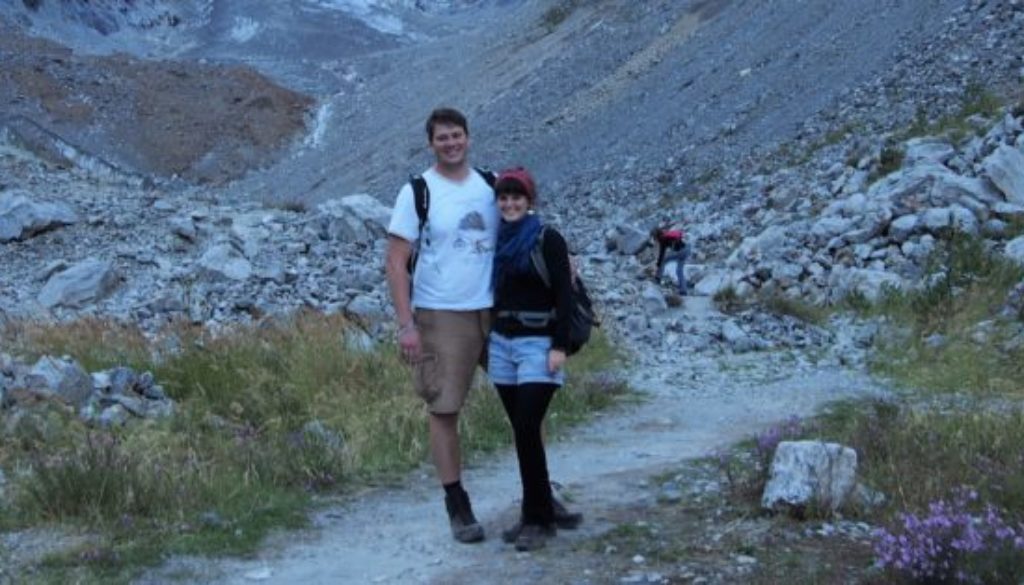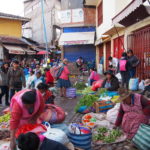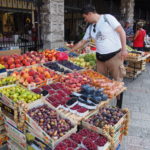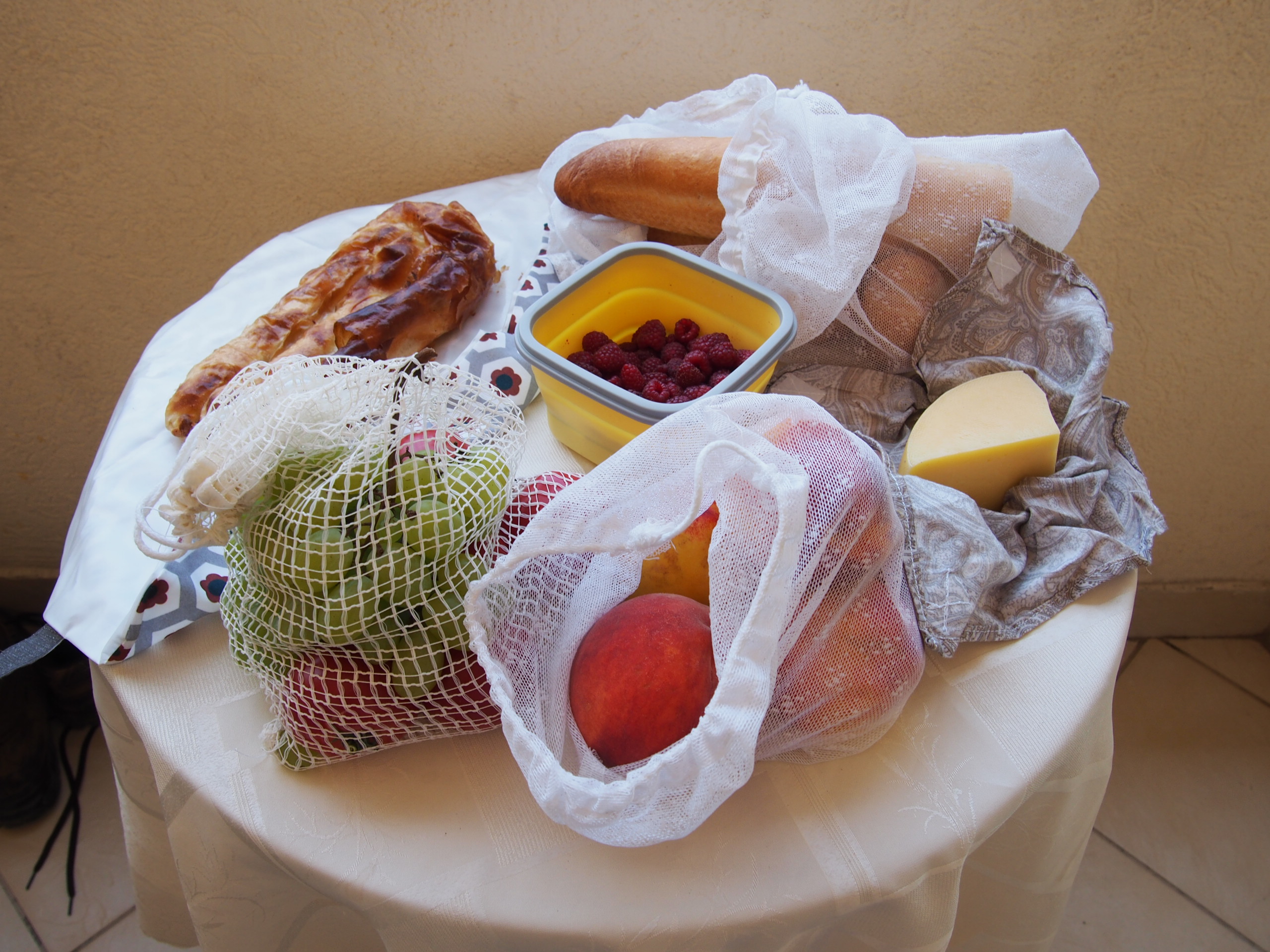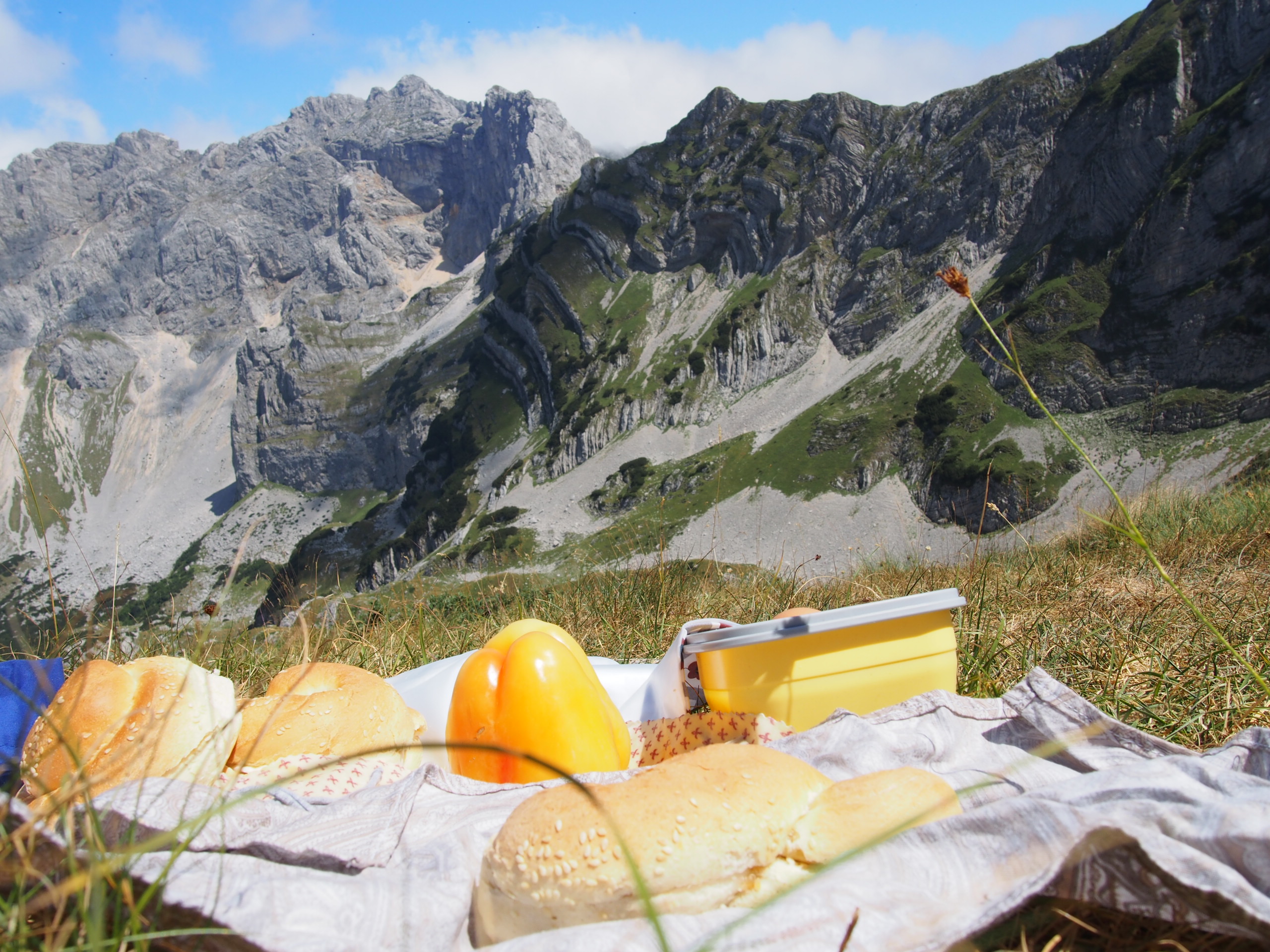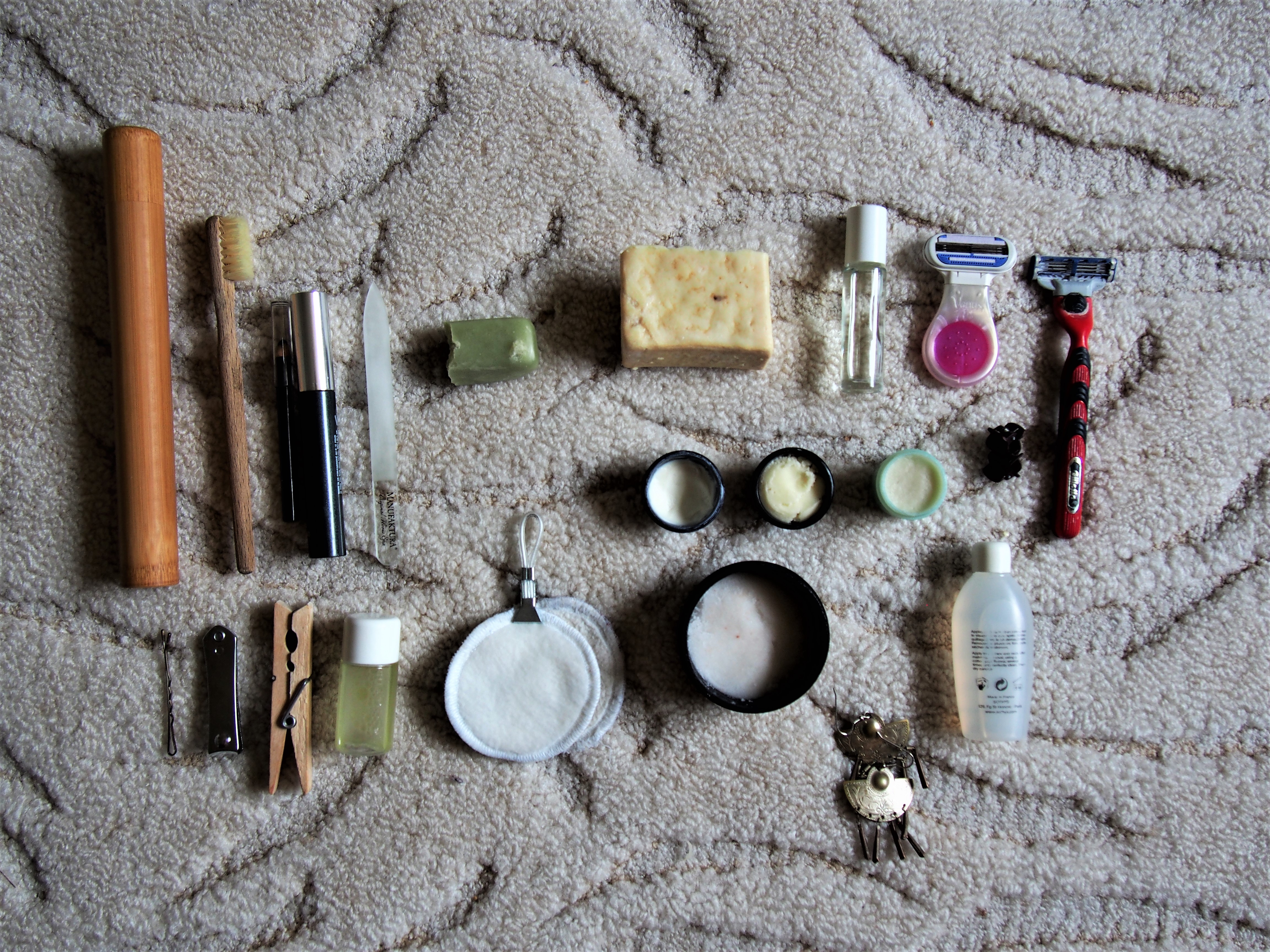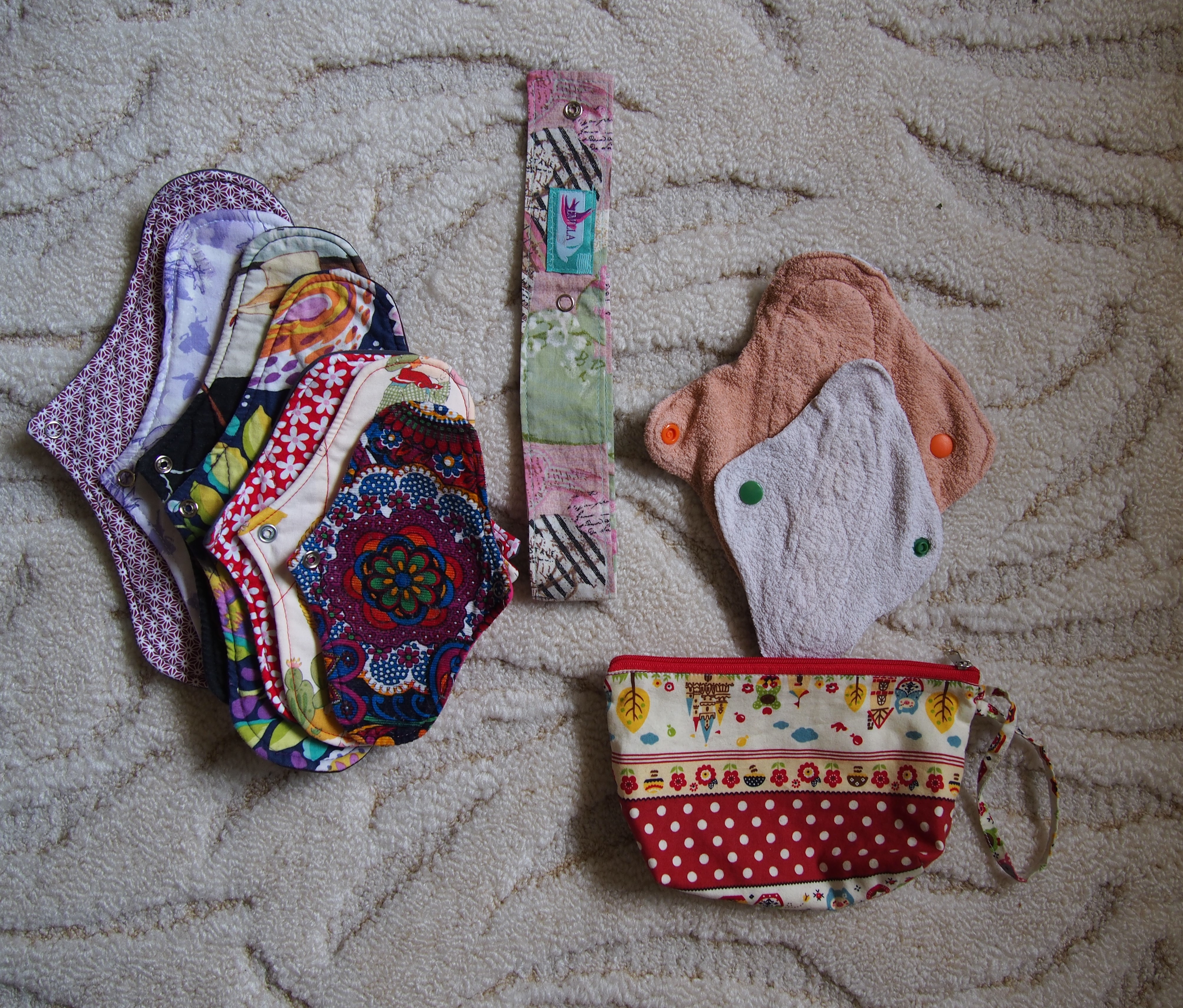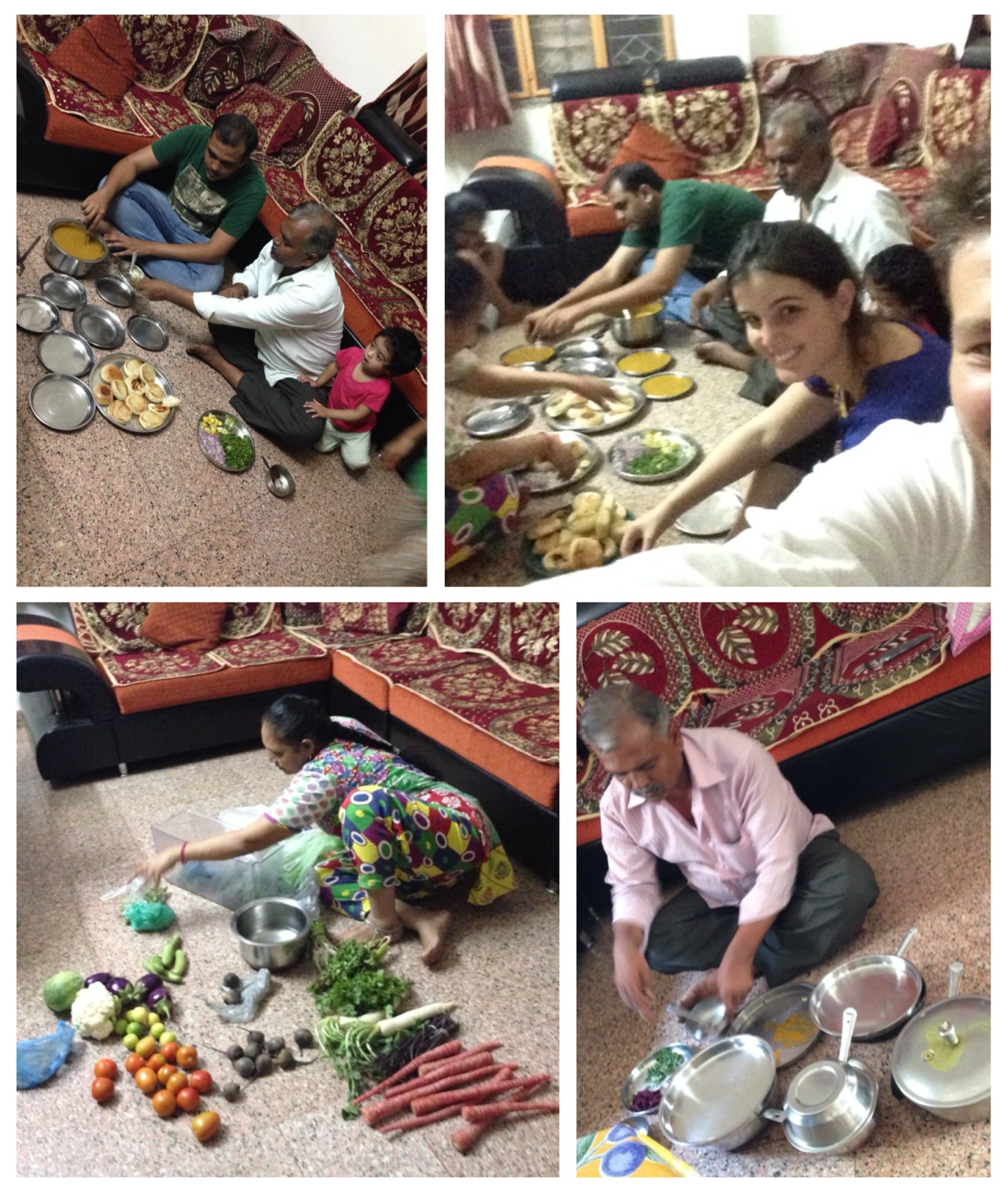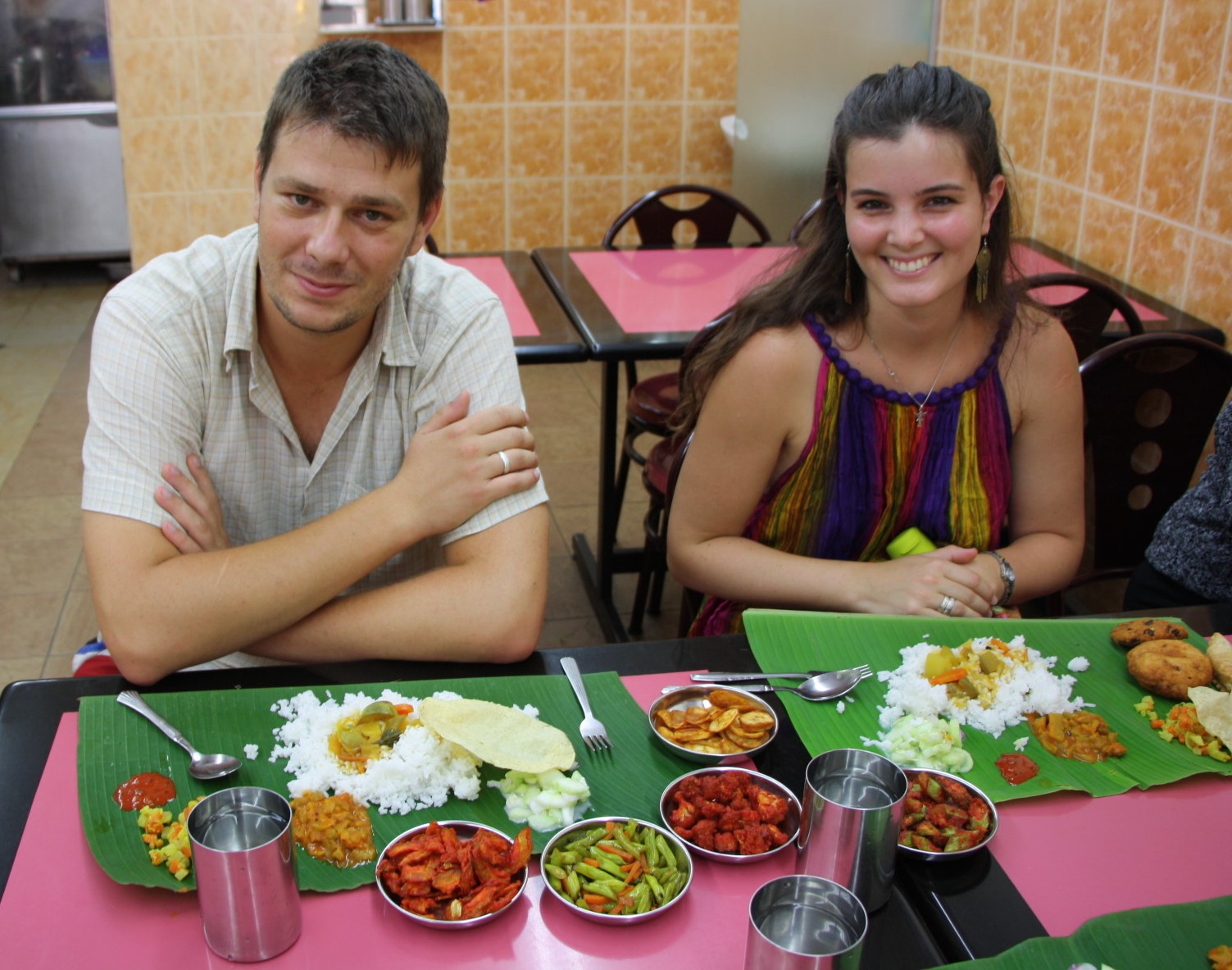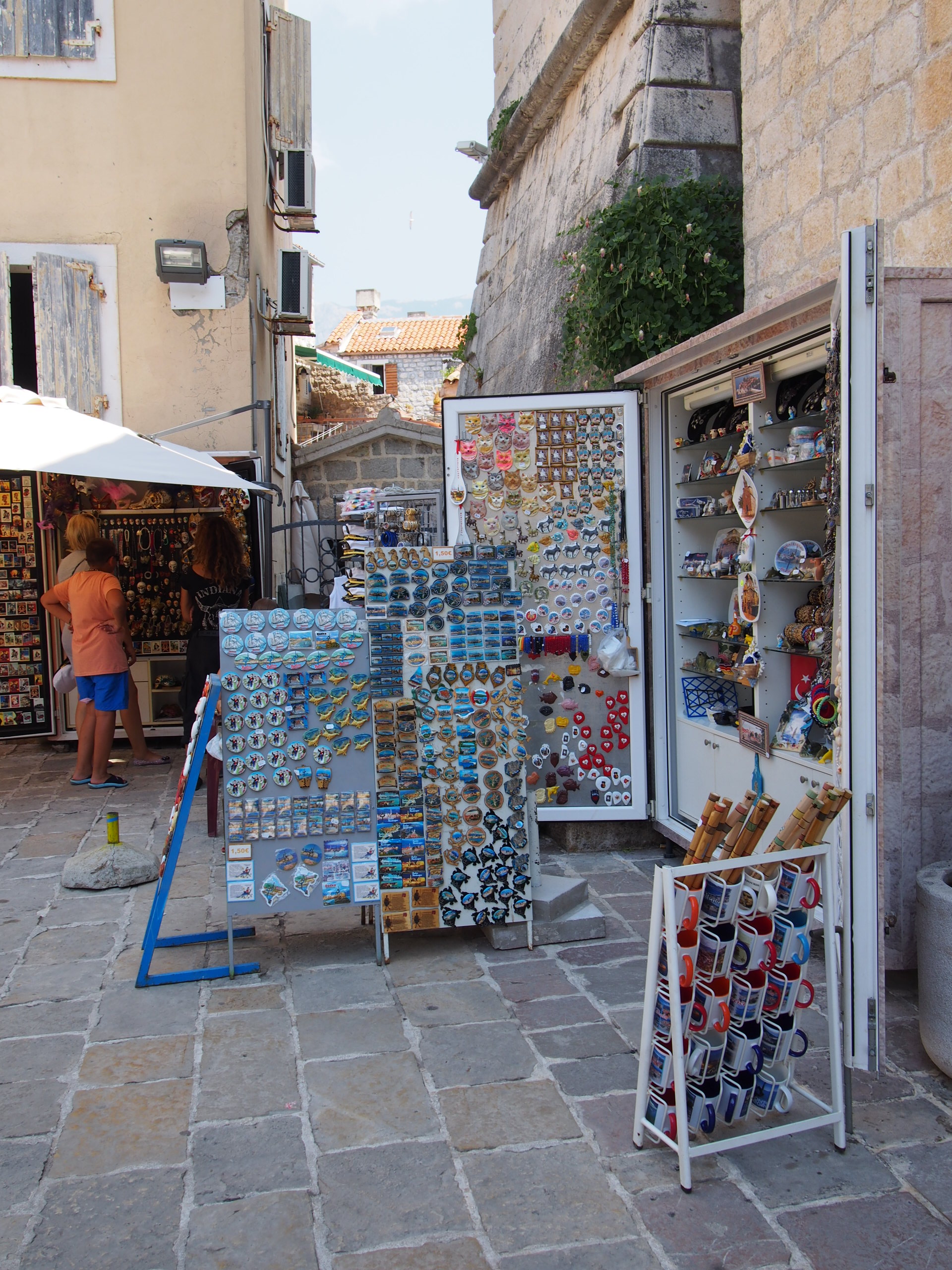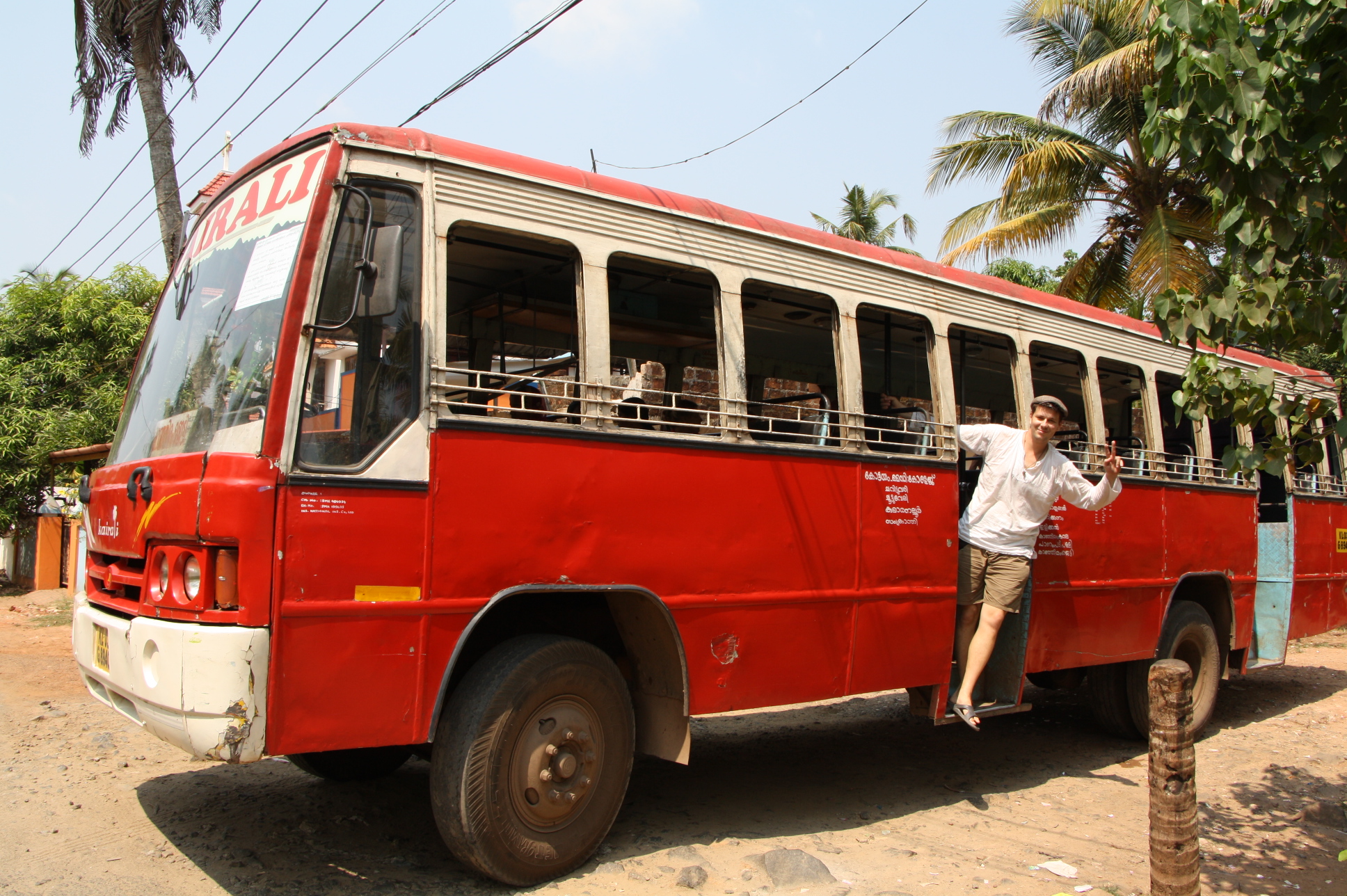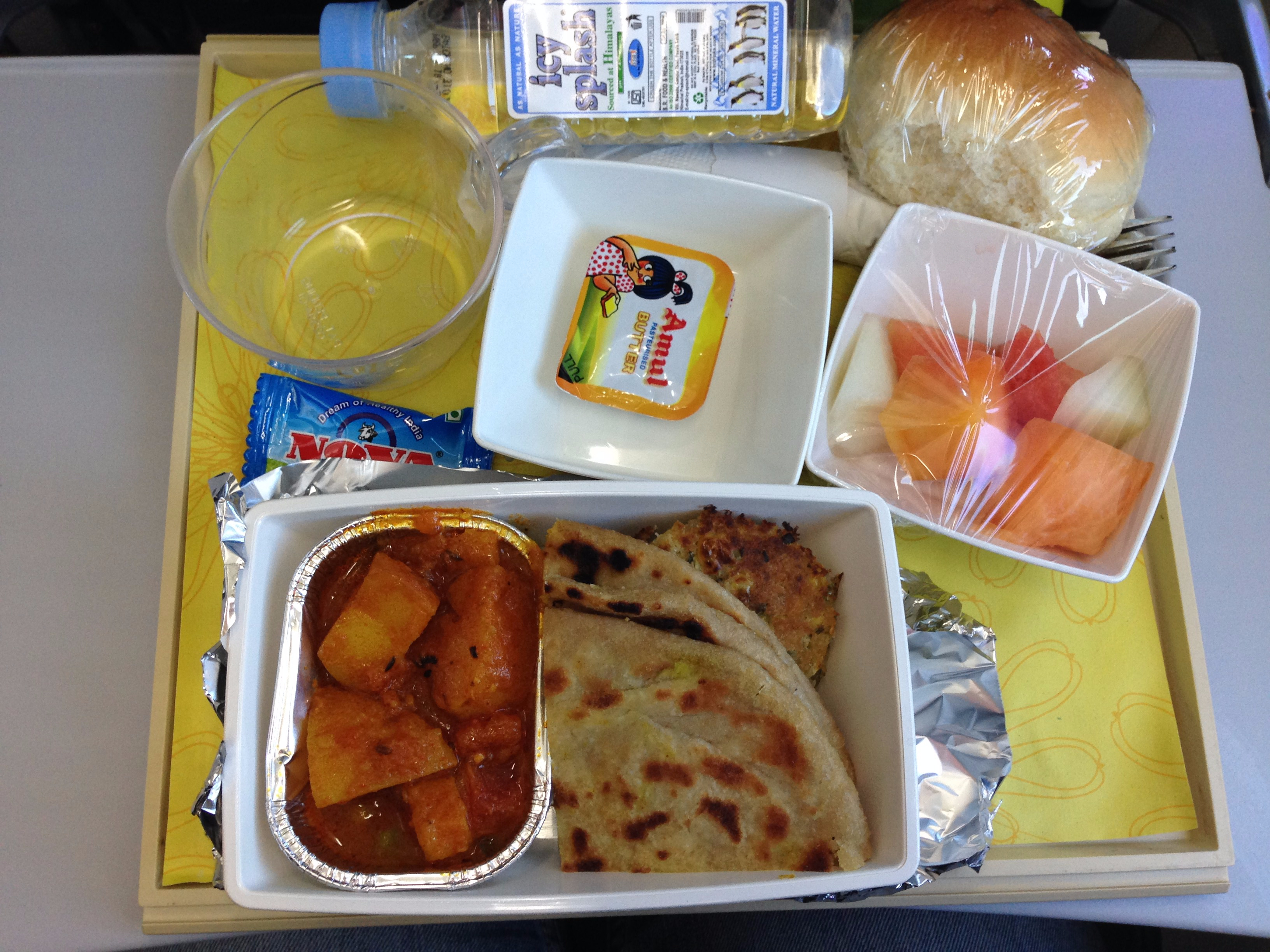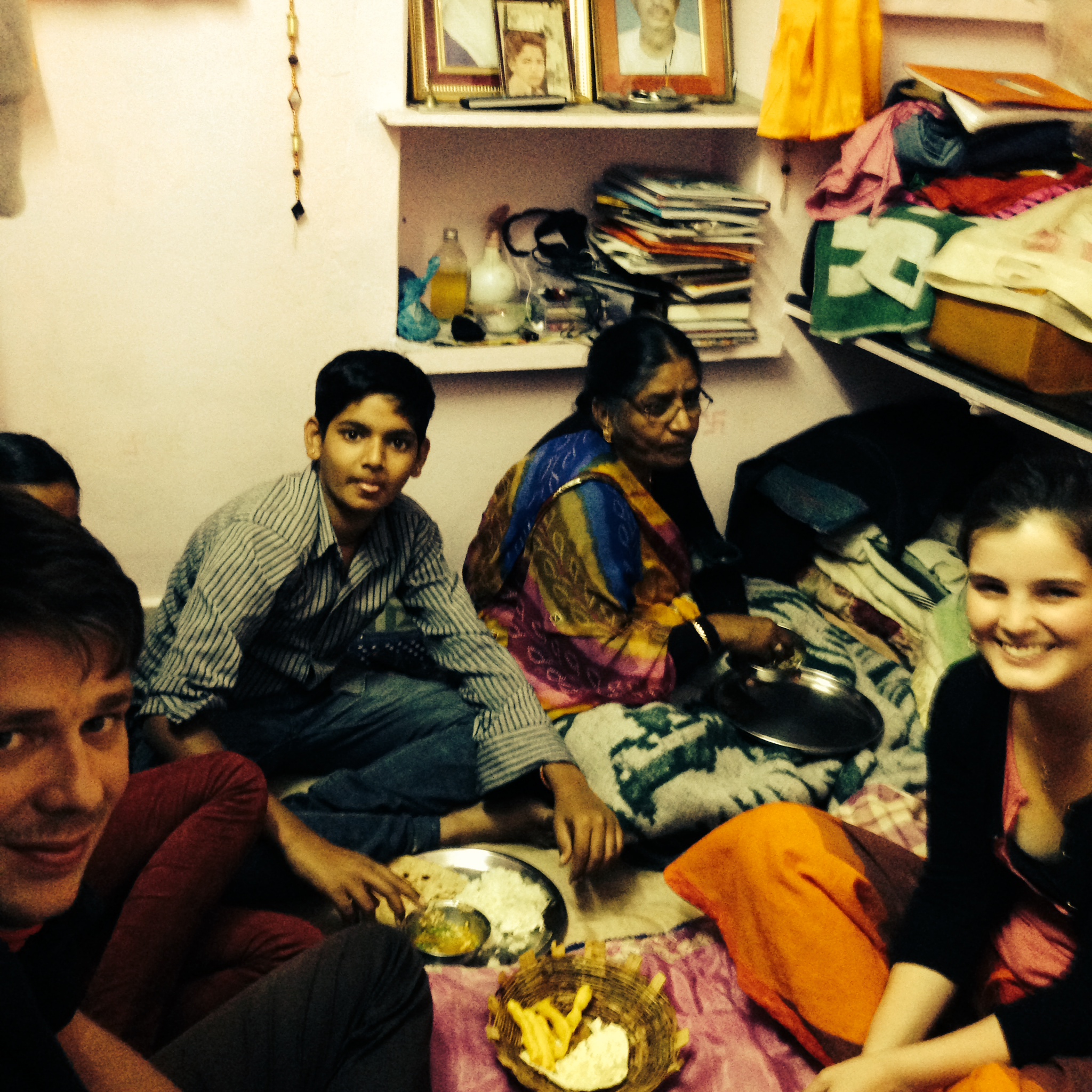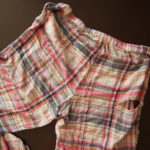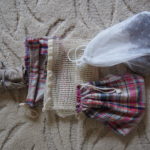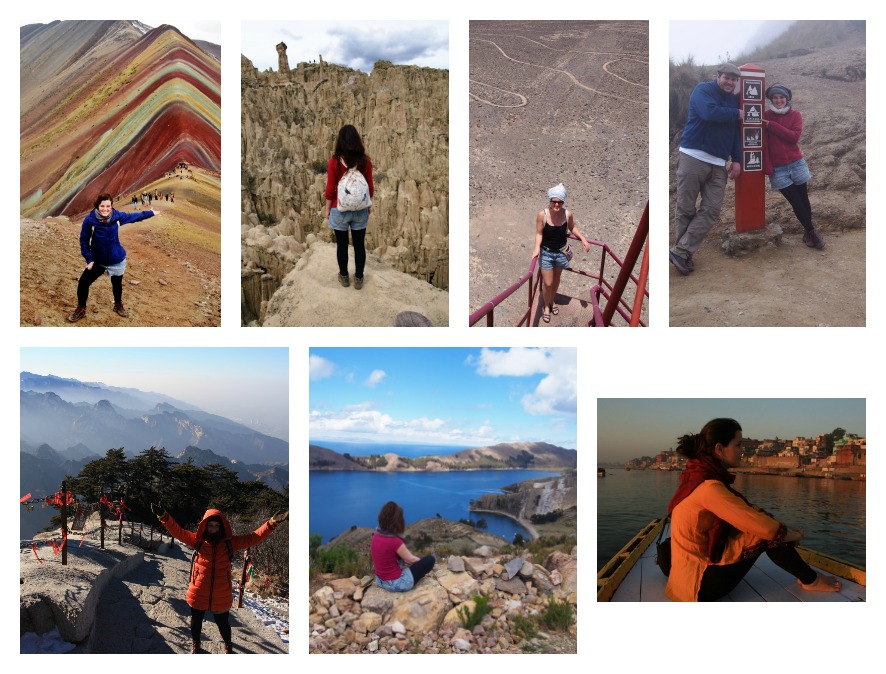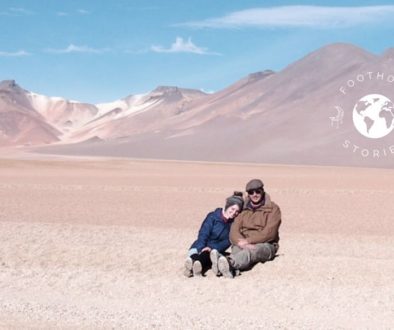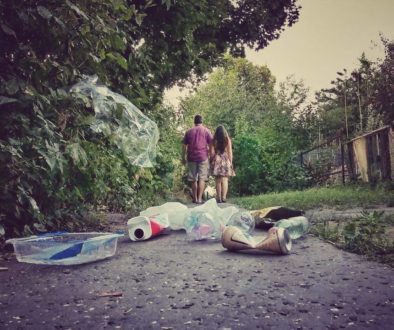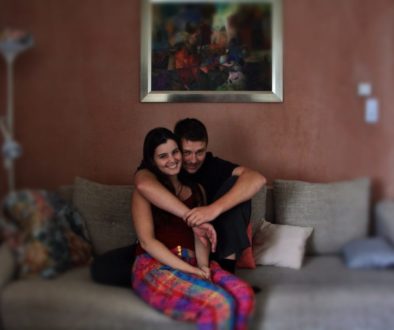Zero waste travelling? How to replace kilos of trash with just a handful.
We are Dora and Edvard and we love traveling. We have realized that with a bit of extra effort and attention one can easily travel producing only a minimal amount of waste, if not completely zero waste. There is only one thing needed: Change our perception. This is a mental act that doesn’t require a lot of effort, just a bit of will.
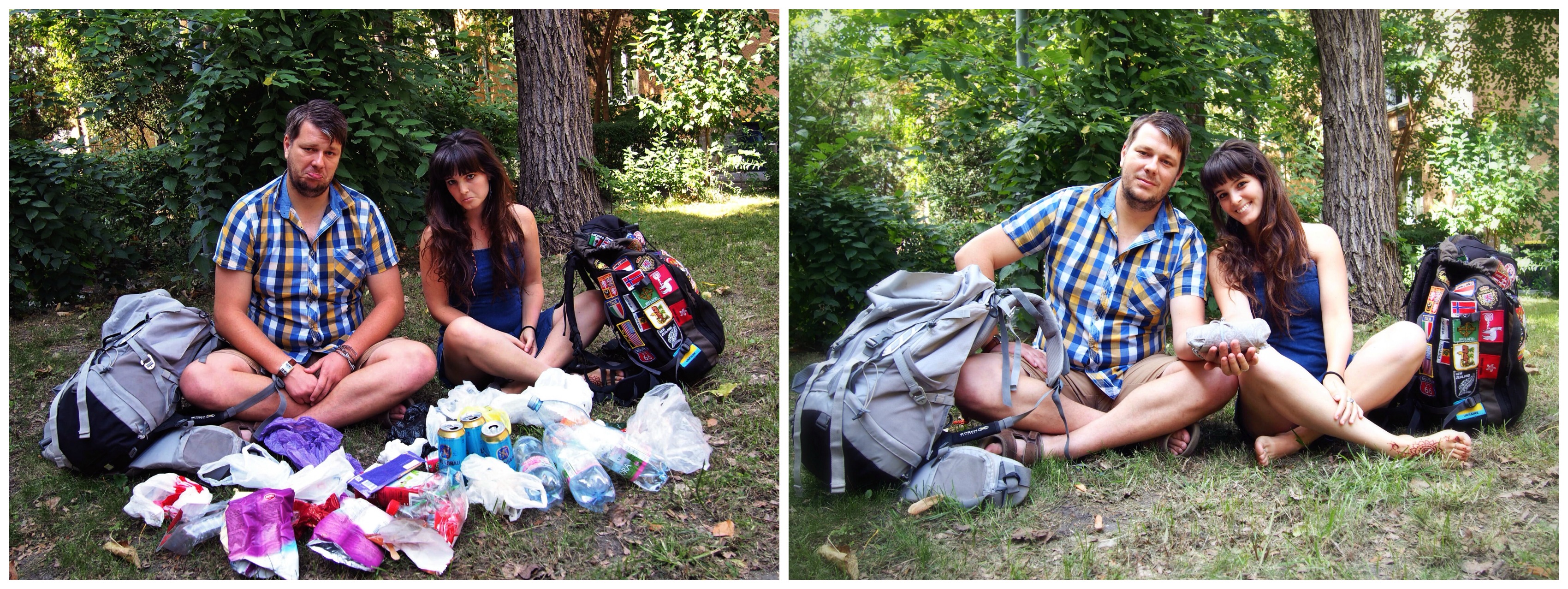 We wouldn’t say that we are real world travellers, just a little bit :-). Three years ago, after our wedding, we made a decision: we will hit the road – instead of reading about it in books, look at photos or listen to other people’s version about travelling, we decided to discover the World ourselves, and how does it feel to only rely on ourselves, each other, and the people around us.
We wouldn’t say that we are real world travellers, just a little bit :-). Three years ago, after our wedding, we made a decision: we will hit the road – instead of reading about it in books, look at photos or listen to other people’s version about travelling, we decided to discover the World ourselves, and how does it feel to only rely on ourselves, each other, and the people around us.
We followed the sunset for a year, after that we have been travelling to different parts of the world for shorter or longer periods of time from Asia to the American continent, through Europe. We tried to have a mindful lifestyle even before travelling, but after seeing the world, we learned that even the smallest decisions have consequences, and can affect the lives of humans and other living creatures in other parts of the world. We have visited many places already, where the waste management couldn’t hide the amounts of trash that was carelessly produced day in, day out, and that is increased by the easy-going lifestyle of tourists.
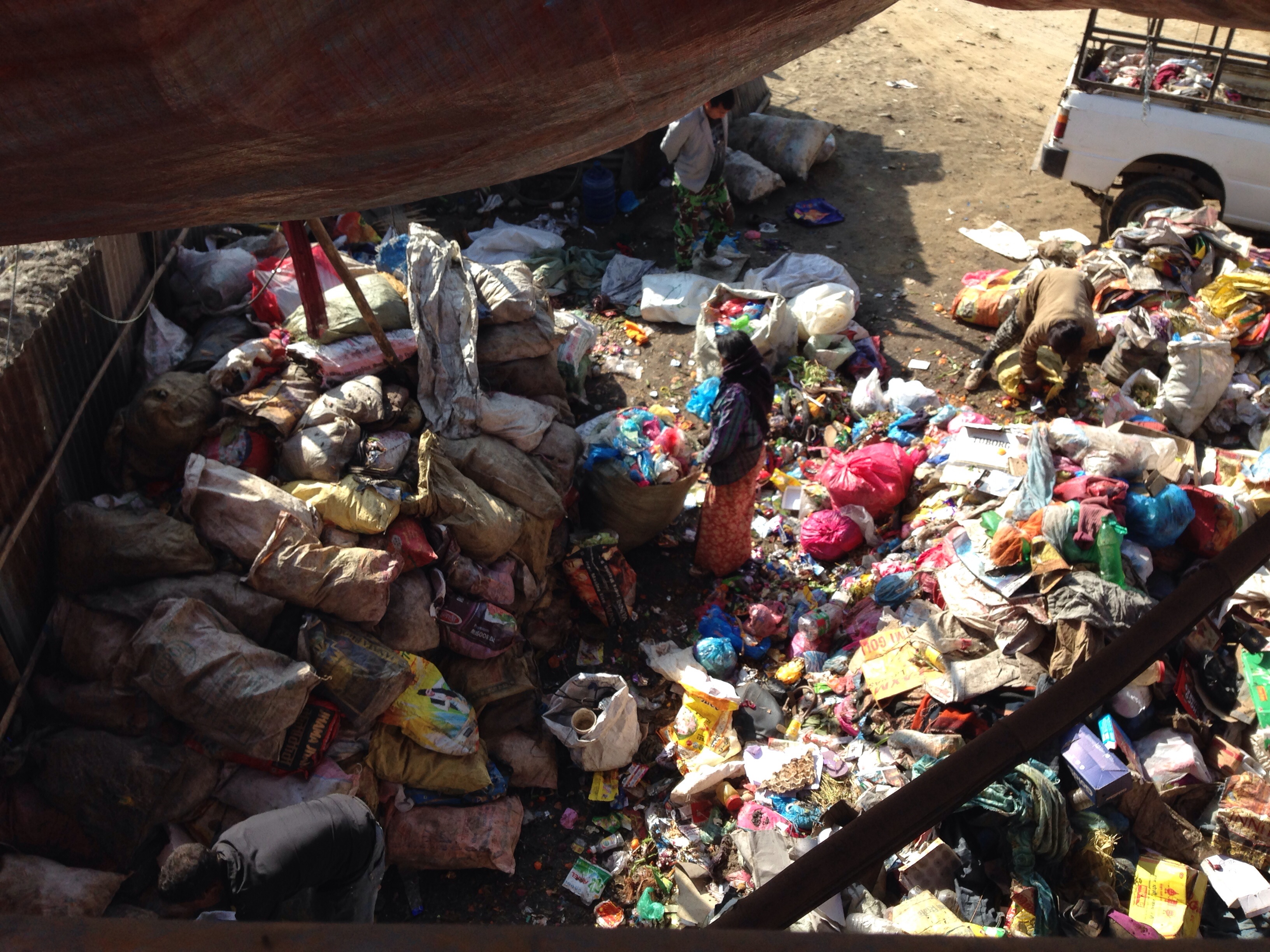
In our fourth month of traveling, we felt that:
“There is some kind of anomaly in the fact that people go on “happy” holidays, and with their lifestyle they destroy the environment that was the reason for their happiness and relaxation.”
At home it is easier to find the places that sell in bulk, with little to no packaging, high-quality foods, and products, but what happens when people get out of their comfort zone, out of their habitat? What is the solution for vacuum sealed sandwiches, muesli bars, that we just throw into our backpacks, for avoiding mountains of plastic bottles in the countries where drinking tap water is not recommended?
Zero wast travel challenge
We were looking for answers to the questions raised above, and believe that with a bit of extra effort and attention one can travel producing only a minimal amount of waste, if not completely zero waste.
We were headed to Montenegro in August with these thoughts in our mind. With only two backpacks, and in 10 days, we only produced 45 grams of trash (the bigger part of which consisted of tickets and receipts). Even though we are the so-called minimalist travellers, we state that it is not a big deal and that anyone can do it, be it a backpacker trip around the world, a flying trip to an exotic place, a vacation on a beach, or a one-weekend getaway.
This requires one, very important thing: we have to change our perception, to create a focus, a state of mind. This is a mental act that doesn’t require a lot of effort, just a bit of will.
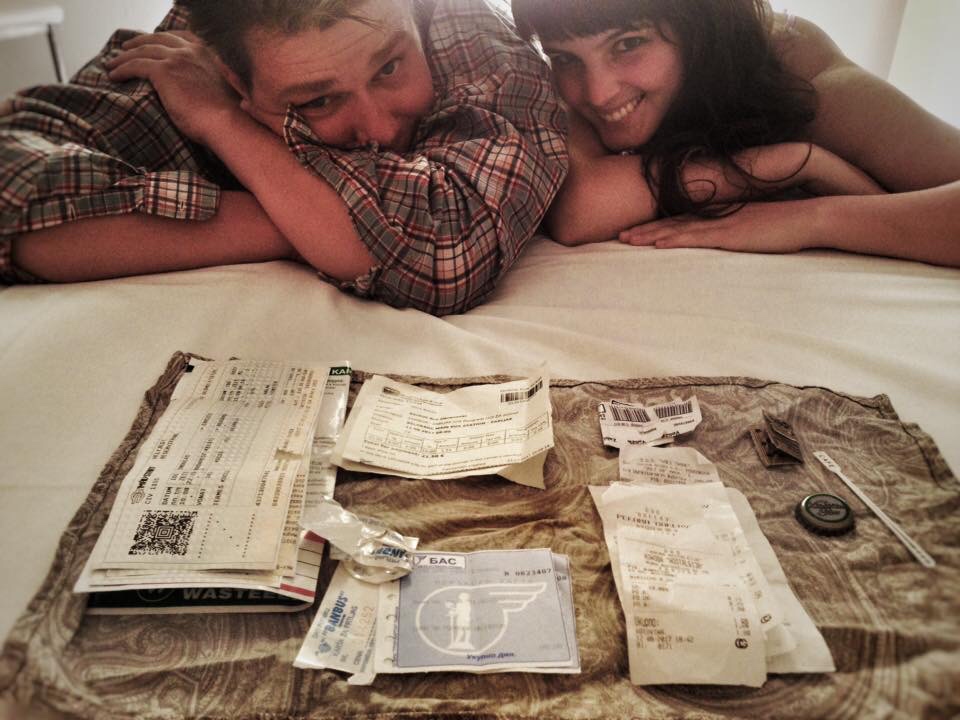 But how did we do it?
But how did we do it?
Here go a few helpful tips, that you can pick and choose from, and maybe apply on your next trip.
We separated some of our tips into three categories (novice, advanced, extreme) so everyone can decide what is it that is possible at this point in their lives. Whichever level you start on, you already did the first step!
The most important thing is getting informed, prepared looking into it; this way, you can save up some money too, not only trash.
Based on our experience, during travelling (except for the environmental footprint of the means of transportation) the bigger part of trash comes from plastic bottles of water, packed snacks packaging, and “the extras” from the touristic industry. There is a solution for all of these.
1.PET bottles
Always have a bottle with you, that you can refill.
Before you start travelling, look it up on the internet, and see if the water of the countries you are going to visit are drinkable, and also ask the locals when you get there.

Novice:
If for some reason you have to buy water, either because the water is not drinkable, you don’t dare to trust the information on the internet, a water filter, or you don’t travel for enough time to be worth investing in one, try to buy the biggest bottle possible, and refill your bottle from that one. Leave the big bottle at your accommodation.
Advanced:
It is not true that you cannot take water on the airplane! Before boarding your plane, after the security check, fill your bottles up. Many airports (e.g. in Asia) have separate faucets for drinkable water.
Extreme:
We take our UV water filter with us everywhere we go. We could clean our water in most of the countries we have visited around the world, and we didn’t get ill. You can also find tablets and drops that clean the water.
Edvárd is cleaning some tap water in Nepal:
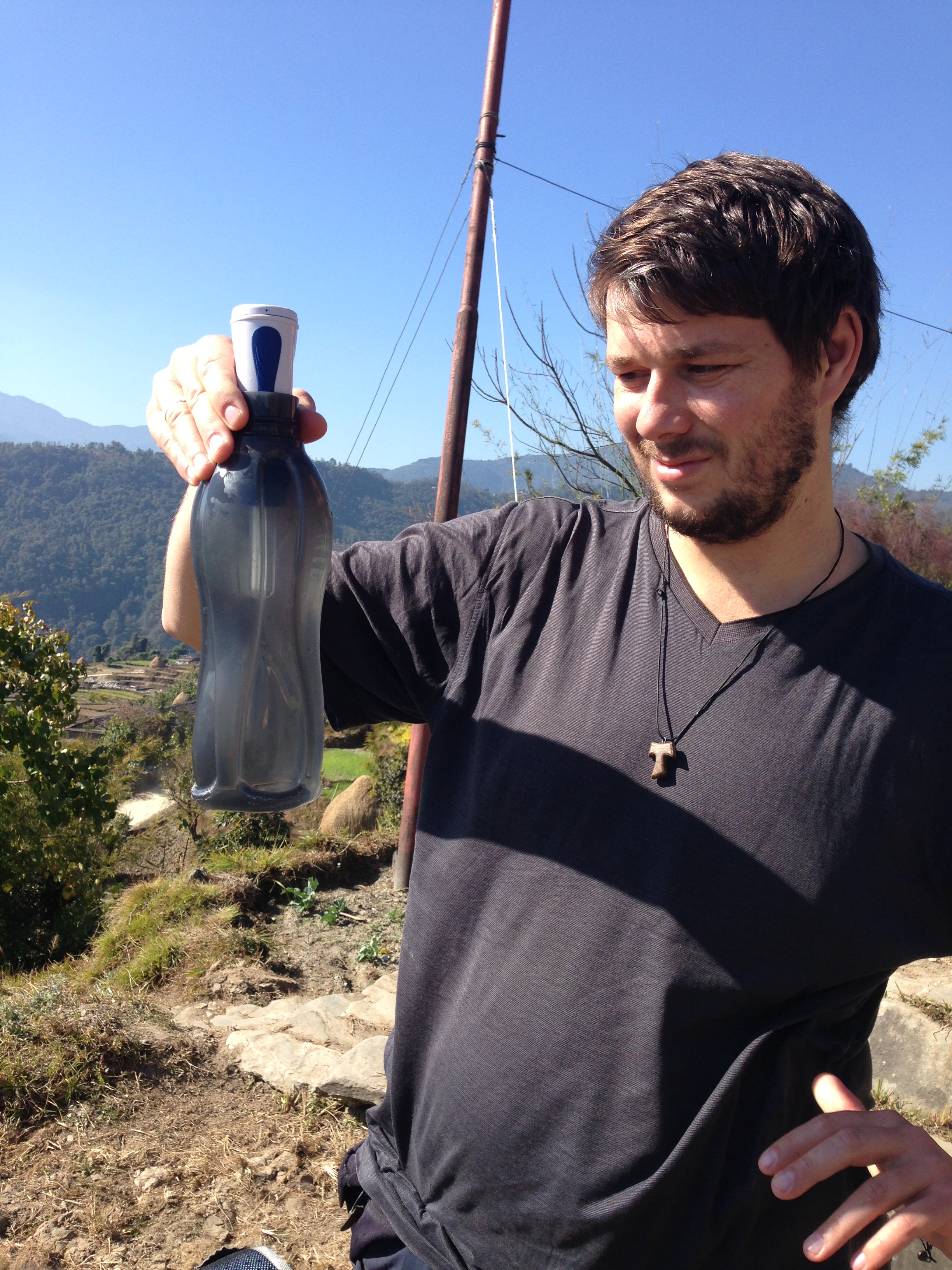
2. Wrapped snacks
Unfortunately, these are always part of a trip, excursion, even though we don’t actually need them.
Novice:
If you don’t want to make your own, or you don’t have time to do it, then buy them in bulk shops, markets, bakeries, but in your own bags. If you have to buy something that is wrapped, then try to get something that has the least amount of wrapping possible.
Advanced:
We made our muesli bars and crackers ourselves, packed ourselves with nuts in our handmade bags. You can pack apples, carrots; there are tons and tons of possibilities.

Extreme: You can simply travel without snacks.:-)
3. “The extras” from the touristic industry
This is what we call the tools and wraps that we “just” get next to the meals we buy, and we only use once. These are: straws, little packets of sugar, salt, pepper, plastic cutlery, takeaway cups, takeaway boxes, fast-food packaging, etc.
You should ask yourselves overtime you encounter these: do I really need them? Do they make my life better, happier, easier? This helps a lot.
What we always have to ourselves:
- Our own cutlery
- Metal straw
- Foldable box (that is easy to pack in a backpack)
Before buying anything, we should kindly ask (it is useful to have a few words written down in the country’s language, or to learn them by heart): do they have draught beer, is the juice in a plastic bottle?
We kindly request to not be given a straw, or a plastic spoon to the coffee, and ask for a regular sugar dispenser.
The same way we drew here what is it that we don’t eat, a straw can be drawn too.:-)
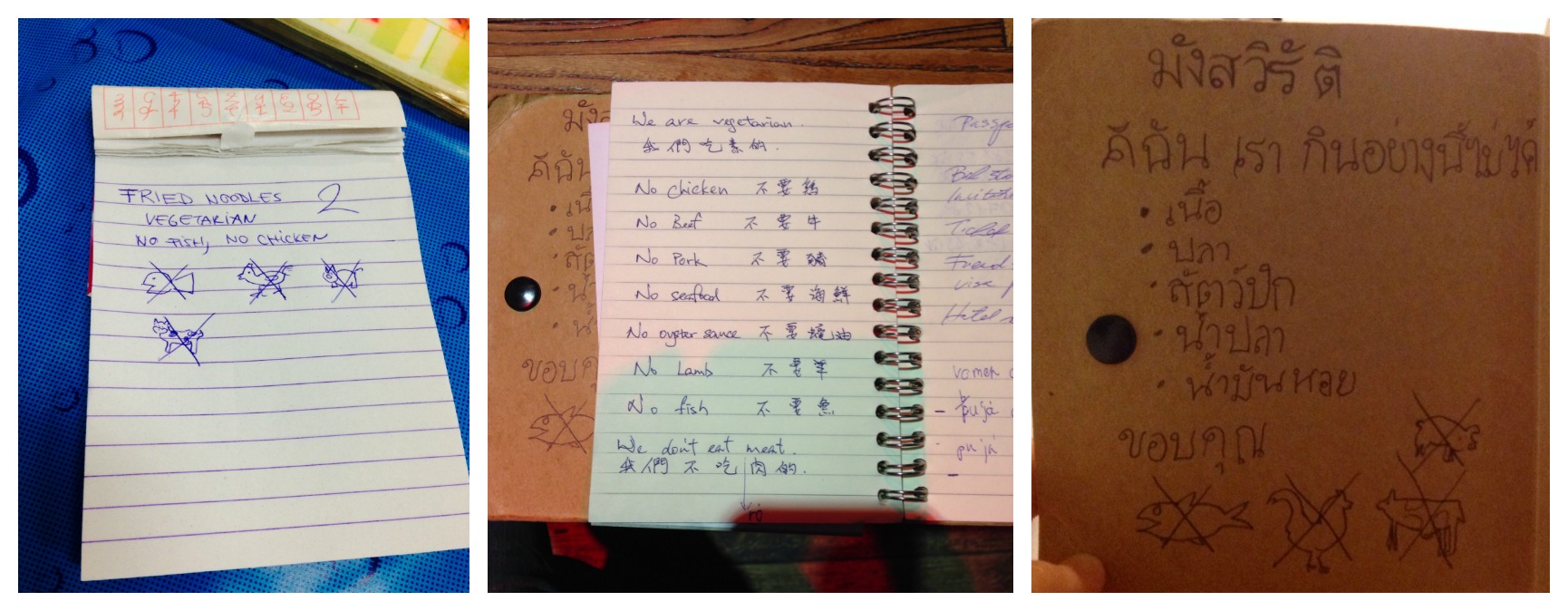
If you focus on the three points above, you have already done a whole lot in order to minimise waste, but if you want to take it one step further…
4. Food during travelling
This is an interesting issue. We don’t want to travel with 5-6 jars and 10 textile bags… while traveling we need to compromise according to the place and the circumstances, but there are solutions.
Instead of thin plastic bags, tinfoil, and cling film, you can have a variety of other options. If you don’t want to do it yourselves, you can get handmade textile bags in markets, or other places – you can take these with you, along with sandwich wraps made with bees’ wax, that is easy to wipe.
- We prepare everything that we can, at home.
Montenegro:
Georgia:
When abroad, you can buy from street vendors, or in markets, in your own bags and boxes.
After shopping:
We also prepared for tracking with sandwiches, fruits, boiled eggs, and oily seeds:
Hint: You have to be very fast because vendors wrap everything in plastic very quickly. We realized that we have to have our bags ready before making the order, because, by the time we finish ordering, our products are already wrapped in plastic or paper. Our “strange” habits are mostly welcomed by people. There were even places where we got some veggies for free :).
5. Hygiene and beauty care
Obviously, this is a sensitive topic, especially while travelling, and everyone has different needs. Every product can be swapped with a zero-waste product that is as good as the not so environmentally friendly counterparts.
Novice:
If you don’t want to waste time making your own products, or making your own products feels too much at this time, then try to fill in smaller bottles from bigger ones, with as much product as you might need. The small bottled products, next to polluting, are also more expensive and of worse quality. Pick tissues that are not packed separately.
Advanced:
Swap one product at a time, experiment. Look up the products that you are going to buy. You can find trustworthy, tested products on hulladekmentes.hu . Instead of tissues, use beautiful and cool textile napkins.
Extreme:
Make it yourself, change it to an environment-friendly material, that you can wash.
- Hand sanitiser. It is very important because most of the illnesses can be avoided by it during travelling, but wet wipes can be replaced by a DIY gel.
- Shower gel, shampoo, washing detergent: You can swap this with one homemade soap, and you also save a lot of space.
- Deodorants, toothpastes, sunscreens, makeup removers, face tonics are all products that can be made at home. You can find many ideas on Edina’s page, our blog, and on the internet. Experiment.
- Change your plastic toothbrush to a wooden toothbrush. We produce a lot of waste with the toothbrushes, and they can’t be recycled.
- Instead of cotton pads, use reusable textile pads.
This is what we packed for our travels (We packed in reusable plastic containers because those are lighter, but you can also use glass)
Feminine hygiene on the road: By using pads and tampons on the days of the month, we produce 11-16000 pieces of non-degradable trash. Just think about where all this trash ends up in the countries that don’t have waste management.
There are plenty solutions for this problem too, and apart from being better for the environment, they are also healthier options. They are as hygienic, as the others, trust me on this, and it saves you the hustle of purchasing these products, which can be problematic in places like Asia, as problematic as purchasing toilet paper.
It is different for everyone, some prefer menstrual cups, others prefer pads that can be washed, both options are perfect for travelling too.
Dóri’s personal travel kit:
6. Everything that is for free, disposable.
What works for us: Before we accept anything, we ask ourselves, do we really need it? If we had to pay for it, would we still take it? If we really need it, can we find a version of it that produces less waste?
Typical examples:
- Airport magazines, especially in languages that we don’t speak
- City maps, full of ads for places where only tourists go (there are some exceptions, alternative maps, but those are very rare)
Solutions:
- Take a photo of it
- If you have a smartphone, use it in a smart way. There are loads of trustworthy, free map apps abroad, that you can use offline, apart from Google Maps. We use Sygicet, because it never failed us, not even in the desert (It doesn’t work in China, as most apps don’t).
- Tracking paths that are suggested by real trackers. For this, we use Wikilock, where we also upload tracking paths, and this way we get to go to places that are not even on the map.
In many hostels and hotels, and in some places even in translations, you can find community book rentals. All you have to do is to leave a book that you finished and take another one.
7. Restaurants
Personally, we don’t eat out at restaurants a lot, we would rather cook for ourselves, or eat with our hosts. In the past three years, we only consumed season fruits and veggies, because the transportation and packaging of products from far away involve and produces a lot of waste.
If we decide to eat out, then we try to pick a place where many locals eat, and where food is not served on plates, and with cutlery that is not reusable. If we do happen to go to a place like this, then:
- We use our own cutlery, and we ask our food be served in our own boxes.
- We don’t request a straw (we have been paying attention to this for only a year. Luckily, before that we haven’t been to many places that gave them by default. We are also growing).
We also don’t go to classic fast food restaurants, because, except for one place that we know in Budapest, we don’t know about places that would serve our food in our boxes, not to mention all the packaging from before serving it to us and the fact that everything is frozen.
As a sweet, instead of eating packed ice-cream, we eat fresh ice cream.:-)
8. Shopping, souvenirs, gifts
We are still growing, because sometimes, mostly Dóri, gets seduced by some local jewelry or shawl. But we only buy things that we are actually using, and we only buy this kind of things as presents.
1.Think about whether you want to spend energy figuring out who do you take gifts to, and what is it that they can actually use, and be happy for. If the answer is no, then just don’t buy anything.
One of the best presents is inviting people over, and sharing your experiences over a home-cooked meal.
If the answer is yes, then, what we do is that we make a list of all the people we want to buy presents for, and we don’t just get “anything” on the last day. We pay attention all throughout our stay, and in case we see something that is handmade, or edible, that we know the given person would be happy to get, then we get it, and carry it around until needed. There was a case when we had to carry presents around for a month, but try not to follow this one example of ours.
2. Fridge magnets or tiny figurines don’t mean much to people who didn’t visit the given places. On top of it all, most of these are made in China. It was funny to encounter the same figurine in two different parts of the world: the only difference was the inscriptions on them.
9. Transportation and flying
It might sound strange, but we like to use means of public transportation, to find our own routes, to discover cities from locals’ perspective. Besides the fact that it is more environmentally friendly than taking a taxi, a lot can be learned about a given place from how their public transportation is developed (in some countries a musical experience is also included).
One of the biggest issues is flying, that at times can’t be avoided. On our travels, getting on an airplane is one of the saddest things that happened. We are not as cool as just devoting enough time to cross the world by bicycle, and we can’t afford to cross oceans by boat…but we still have a great desire to learn about cultures far away through first-hand experiences, to adventure in nature, so we have to get on a plane at times.
I believe you won’t be surprised to learn that there is no selective trash management on planes and that all the waste goes to one place.
An average in-flight menu:
What can be done?
- Try to travel with low-cost companies, that don’t have food included automatically
- Bring your own food, and make sure to announce the flight company that you don’t want food. Unfortunately, many companies don’t have this options, and there were times when we were not able to NOT get food, as we were served anyway.
- Use your own cutlery, cup, bottle. If one of the flight attendants wouldn’t pour the water into your bottle, ask another one. They are not allowed to refuse you anyway.
- If you don’t have a cup or a bottle, use the same cup throughout the flight. (on an average 300 passenger flight, during a 9 hours flight, 1000 cups, and 500 bottles of water are used).
- Share your knowledge with the people sitting next to you, and ask them to follow your example. People tend to be open towards this.
10. Accommodation
Accommodation is a very part of traveling for us from many points of views: budget, experiences, connections, and cultural discoveries. If we have the chance we do couchsurfing, and this is usually our first option.
If we can’t stay with a family, or Couchsurfing hosts, then we check to see if locals have rooms for rent. This way we support the local community, and we had so many friendships born from these experiences, and it also produces less waste. In inns, if you get soaps, towels or shower caps:
- You can let the staff know that you don’t need them, this way they won’t have to wash the towels after two or three nights.
- If you don’t use the tiny soaps, you can give them back (unfortunately, in big hotels, soaps are thrown away even if they are not used. You can inform yourselves at the hotels you are staying, about what their policy on the topic is.)
- Always use the “I don’t want new towels and sheets” board. If those get changed anyway, let the staff know; this way you are saving huge amounts of washing detergents, water, and electricity.
- There are a lot of eco houses, and ecovillages, it is worth looking them up.
- Instead of renting a house, try swapping your house with someone from the other end of the world. The name of this initiative is house/home swap, home exchange. Or you could take care of someone’s house and pets, the initiative of this programme is called “house sitting”.
11. Clothing
Despite popular belief, we don’t need separate clothing for different activities:-)
While traveling, you can save up a lot of place by choosing your clothing effectively, so that they can serve different purposes. As you plan to use these pieces of clothing a lot, it is worth investing in ones that you can use for a longer period of time, and that doesn’t become waste easily.
Dóri used her pyjama around the world for a year, then she retired it into bags, and now it continues travelling with us.
The most practical, most space effective combination of clothes: leggings and shorts:
For us, the most important items are our shoes. We picked shoes that can have their soles changed when they go bad (which should be after 10-15 years). We can also change the zips of our backpacks, in case it is needed.
There are many opportunities, customise them according to your time, will, and creativity, but don’t forget:
- Enjoy your trips, sit down for an hour in a park, and just watch the people.
- Don’t stress, there’s going to be some waste at the beginning, unless you always hitchhike, and never shop in stores.
- Take your time, step by step, you don’t have to do everything at once, because you’re going to feel like it is a burden, and it is going to be uncomfortable.
- Whatever you will do, your behavior as a western tourist (this is mostly true in the developing countries) will be considered a value and will be copied by locals. If we throw trash everywhere and take photos with tigers, then those are the markets that we support with our money; if we take our own bags everywhere and it is important for us to have locals well-paid, then the big companies will start supporting and providing for these fields.
If you want to get into it deeper, check our travel posts on our facebook site, and if we forgot anything, or you have ideas, that you would like to share with us, we would be happy if you could write us.
This post is a translated and a modified version of an article we have published on the blog of the largest Hungarian zero waste webshop, hulladekmentes.hu.

